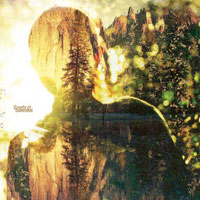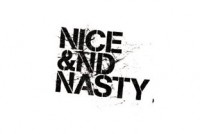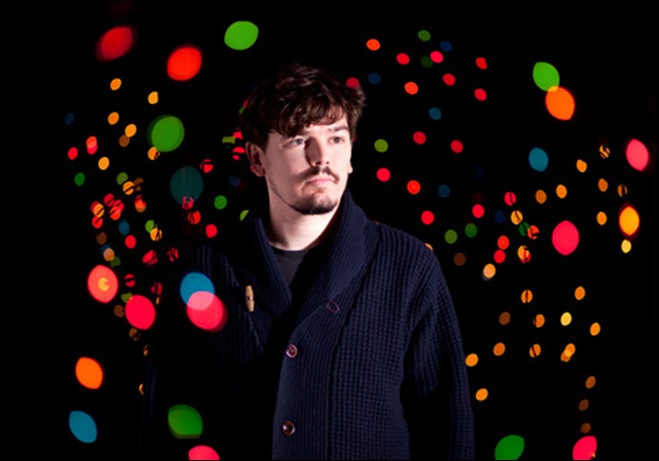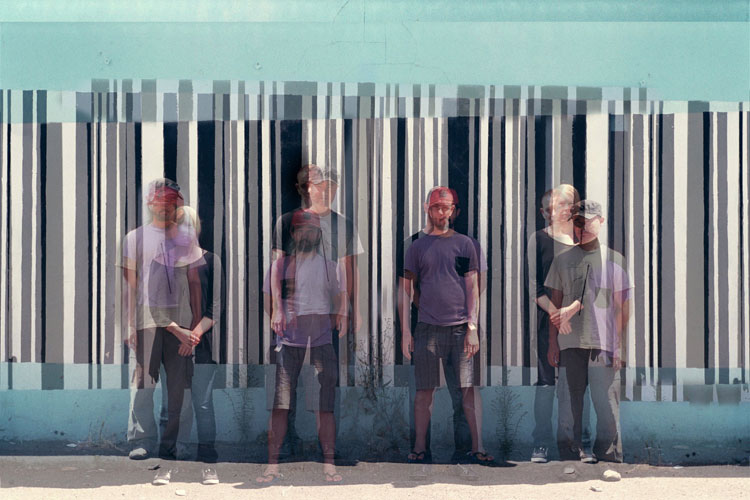Australian experimental-rock band PVT (formerly Pivot) is comprised of brothers Laurence and Richard Pike and electronic artist Dave Miller. The trio’s latest album, Church With No Magic, was released last summer on Warp, and now the band is crisscrossing the US in an extensive tour with all-girl psych-rock quartet Warpaint. ALARM contributing photographer Elizabeth Gilmore attended the show and captured these shots of both bands under the glow of Chicago’s Lincoln Hall lights.
Warp Records
The Groove Seeker: Seefeel’s Seefeel
On a weekly basis, The Groove Seeker goes in search of killer grooves across rock, funk, hip hop, soul, electronic music, jazz, fusion, and more.
 Seefeel: Seefeel (Warp Records, 1/31/11)
Seefeel: Seefeel (Warp Records, 1/31/11)
Seefeel: “Dead Guitars”
[audio:https://alarm-magazine.com/wp-content/uploads/2011/02/02-Dead-Guitars.mp3|titles=Seefeel: “Dead Guitars”]A largely forgotten mid-’90s band that was always ahead of its time, Seefeel has released its first album in 14 years. The self-titled record feels like a debut, and it is to a certain extent, considering the band’s lineup changes. Seefeel explores the territory of electronic outfits such Battles and Emeralds, bands that were influenced by Seefeel’s 1993 debut Quique. It feels like some sort of weird déjà vu. If anything, it’s an impressive rebirth, one that has the group deconstructing the sample-based post-rock style it pioneered before MIDI sequencers were even looked at as viable forms of instruments.
Formed in 1992 in London, Seefeel’s music was once stylistically situated between shoegaze pop and what people were calling “ambient techno.” It had a smooth nonchalance to its music, with ambient electro-pop symphonies strung together by Sarah Peacock‘s sparse, dream-like vocals.
Noise pop is perhaps the best way to describe its music retrospectively — or IDM before IDM was IDM. Though we must not forget those higher on the electronic family tree (Kraftwerk comes to mind), Seefeel’s importance to the scene lies in fending off the “dance” label. What’s more, as the first “guitar” band signed to Warp in 1994, its use of live instruments also speaks to its groundbreaking artistry.
BPM Counter: Interview With Desy Balmer
 Ireland and her music is really what this story is about.
Ireland and her music is really what this story is about.
When I think of Irish music, I think of Belfast and seminal artists like U2, Stiff Little Fingers, and Van Morrison who all weave a rich tapestry of the romantic poet traditions as old as the Emerald Isle itself and the modern problems that plague all divided nations.
Prefuse 73 Breaks It Down
Though few self-respecting artists would admit to making music for the sole purpose of pleasing their fans, it’s certainly a rare musician who makes an album that he doesn’t expect will connect with his audience. From Neil Young dropping an electronic album in the middle of a series of folk and rock records or Lou Reed terrorizing his listeners with an album of guitar feedback, artists have made albums that seem designed to shake less resilient listeners off their bandwagons. A similar path has now been taken by Guillermo Scott Herren, also known as Prefuse 73, for his new full-length album Preparations (reviewed in ALARM #29 – read it here!). In addition to his usual dose of experimental glitch-hop, Herren crafted an album of avant-garde classical music to go alongside. He wasn’t just following his creative intuition—
he was making an album that could alienate his normally open-minded listeners. Some might even call it daring.
“Daring?” Herren asks incredulously. “No. Maybe dumb. Suicidal. It’s like jumping off a cliff. You don’t know what to expect. I think Warp [Records] are smart in the way that they’re marketing the record,” he continues, discussing his label’s decision to add the orchestral compositions as a fifteen-track bonus album, entitled Interregnums, that comes with the physical purchase of Preparations. “The beat-heads and the cats who are into Prefuse as Prefuse is can get this shit however they want, but if you really want the other disc, you can buy that too. Because I’m sure that there are lots of people who have absolutely no interest whatsoever in the other disc, and that’s fine.”
Pieced together over the span of a year and completed during time off from tours and various projects, Prefuse 73’s unusual double album breaks new creative ground for the man who almost singlehandedly reinvented instrumental hip hop. Herren took the genre by storm in 2003 with One Word Extinguisher, his sophomore full-length for Warp; the album’s stuttering samples and crackling electronics were unlike much else heard over hip-hop beats.
The last two Prefuse albums—Surrounded by Silence (2005) and Security Screenings (2006)—brought a variety of guest musicians and MCs that resulted in disjointed releases. Now four years since his breakthrough, he is returning to the insular, deeply personal heart of his craft.
“This is the sixth record, so I just wanted to do something other than ‘Prefuse is on his MPC again,’” he says, mentioning the beat-making equipment he has used to craft his idiosyncratic sound. “I left the sounds alone instead of editing, chopping, and sampling so much. I was more into arrangement and form and the construction instead of editing and splicing and deconstruction. It was sort of the opposite way around. I implemented more live playing on the beats instead of sampling. That’s why it gets really dense with live playing and live sounds. I just wanted to take that direction, because I never have before. I’ve always put a restriction on my level of live playing. But this time I went crazy and did it all.”
Doing it all included playing cello, piano, flutes, clarinets, and percussion for Interregnums, the orchestral material that laid the foundation for much of Preparations.
“Making the beat part—the actual beat side—was very natural, and it was exactly what I wanted as I was making it,” he says of Preparations. “The hard part came with side two. That was more of a challenge, like, ‘How am I going to do this without it being incredibly corny or over-the-top stupid?’ I didn’t want to hire other people to do it either. That was the hard part, doing things that I’m inexperienced in doing. That’s what made it fun and interesting for me.”





